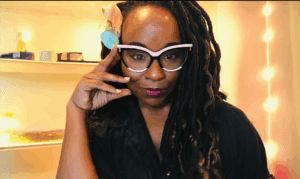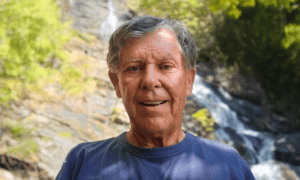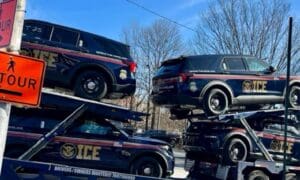Augusta was delightful — far enough away from home that we could live our own lives but close enough that visits home weren’t a hardship. We had to stay in a motel for a few days and took the opportunity to check out the surroundings, learning finally, what CSRA meant. That was the term used by all the news media to refer to Augusta and the surrounding area. It stood for “Central Savannah River Area.”
After checking everything out, we decided to put down some roots, realizing that this would be a great retirement location, and bought a house — a decently sized three bedroom, two bath brick ranch on a half acre just outside Augusta but almost adjacent to Fort Gordon. Our actual mailing address was Hephzibah. It was brand new and in a subdivision called “Town and Country Estates.” For all its fancy sounding name, it was just a few hundred miles off Tobacco Road, which went directly into the back gate of Fort Gordon — an easy drive to work for Butch.
I felt we had finally “arrived” — a house in the suburbs with a dog, a kid and a station wagon.
We planted grass and flowers, fenced the back yard for Heidi, bought a swing set for Dee, played tennis and bowled as often as we could … it was a good life … we were probably the happiest we had ever been.
I taught school — I was the “token” white teacher in an all black school, a story unto itself — Dee entered public school in nearby Hephzibah, Butch did his Army stuff, and we were all deliriously happy.
I couldn’t let the “Tobacco Road” reference get by me and checked out Erskine Caldwell’s famous (or rather infamous) books, God’s Little Acre and Tobacco Road. I had never read them but knew they were considered to be very risque and did not portray rural southerners in a very good light. That part was true but I laughed so hard at times I had to put the books down, they were so funny.
We lived blissfully until the fall of 1971, when the bad news came — surprising because it had come so soon. Butch was up for his second overseas, unaccompanied tour. We were shocked, actually, and didn’t quite know how to handle it.
After much discussion we decided that Dee, Heidi and I would stay there and wait. We reasoned that we had made it through the first one and we could do it again.
We traded the Volkswagen for a brand, new 10-passenger Ford Country Squire station wagon with a powerful engine that would not allow us to be blown off the road on the Interstate as the little VW had done at times.
And, herein, lies an amusing story. When we sold Zelda in Dahlonega, I didn’t know it until after the deal was completed, but Butch put the new Fairlane in his name. Zelda had been mine, registered in my name. I felt a little miffed that I had been left out of the transaction and let him know it … for a long time afterwards.
When we bought the Country Squire station wagon and all the papers were signed, Butch turned to me, handed me the keys and said, “Here. It’s in your name. Now will you please shut up about Zelda?” Love that guy.
As his departure date came closer and he packed to leave, I secretly tucked little notes into his clothes … “Thinking of you right now. What are you doing? We love you. Stay safe …” and other such nonsense that I hoped would make him smile.
When we left him at the airport on that bleak October day, Heidi would not stop staring out the back of the car as we drove away without him. Maybe she knew something we didn’t.
Waiting was hard but was made easier by friends (the neighborhood was almost all military) and I had joined the German Shepherd Dog Club of the CSRA — something new — and was getting interested in dog shows.
Christmas came and went and Dee and I busied ourselves with school and dogs, and soon a neighbor and old college friend joined me in my new hobby.
We were in her back yard that dreary day in April, working the dogs, when the young lieutenant walked up to the fence, asked for me, and when I went to him, clicked his heels together, saluted and said, “Ma’am, it is my duty to inform you that your husband has been killed in the line of duty.”
Silence. Disbelief.
And there it was. In the blink of an eye I had become a civilian.
I will apologize here. Even though it has been 44 years, I still cannot talk about the next few weeks. It was a nightmare beyond belief. Those who have experienced it know. Those who have not, I hope you never do.
It was made easier by an assigned survivor’s assistance officer who was by my side day and night, until the last note of Taps had faded away.
I will say this. Because there was no national cemetery close by, we buried him at Sharon Memorial Gardens in Tyrone. I had never heard of Fayette County but my mom and dad had recently moved here, downsizing from the big house on Headland Drive in East Point which was no longer needed. Mom told me of “this pretty little cemetery in Tyrone.”
We drove here from Augusta and when we topped the hill at what used to be Jim Hudson’s store, I knew we had found the place.
Newcomers won’t remember this but back then Alton Brown kept black Angus cows in a pasture that stretched all the way from the top of the hill to where the Methodist parsonage was then. On the right was the steeple of the Baptist church and the American flag guarding the cemetery next to it. Dividing the two scenes was the wide sweeping curve of what is now Senoia Road. I knew Butch would love it. Now my dad is there too and my mom and I will be there when our time comes.
And here the story ends. Gone was the world of calling cards, formal gowns and long satin gloves, hails and farewells, cocktail parties and formal teas. My life as a military wife was over.
But I wouldn’t take a million bucks for the experience. And neither would I take a million bucks for the joy of having Butch as my husband for those 10 short years. He was really an amazing guy.
Judy Kilgore is the religion editor for The Citizen.












Leave a Comment
You must be logged in to post a comment.